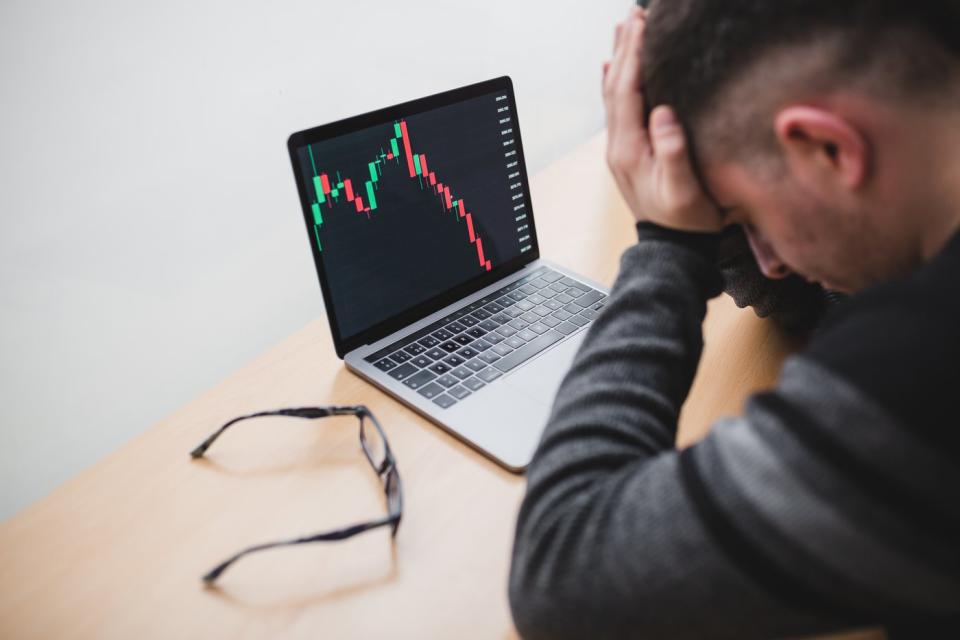Icahn Enterprises (NASDAQ: IEP), headed by activist investor Carl Icahn, has paid out a very appealing dividend yield for years. However, the stock has been under significant pressure since last year when it was the subject of one prominent short-seller and the target of a recent Securities and Exchange Commission (SEC) investigation.
Icahn Enterprises stock is down 44% from its 52-week high today, but I wouldn't touch it now despite its lower price. Here's why.
Icahn Enterprises' lackluster performance
Icahn Enterprises is the holding company of famed activist investor Carl Icahn. Known as the "corporate raider" for his activities in the 1980s, Icahn invests in underperforming companies that trade at attractive valuations and takes an active role in reshaping the business to unlock more value for shareholders.
One recent example of Icahn's success was his 2013 purchase of Herbalife. According to CNBC, Icahn made about $1.3 billion on this trade, which he closed out entirely in 2021.
However, Icahn's recent performance has been less than stellar. From 2014 through 2023, the investing component of Icahn Enterprises has lost $9.2 billion. One reason for its poor performance was Icahn's short-selling and hedging activities.
Over the past several years, Icahn has taken short positions, betting on declining stocks or making other bearish bets through instruments like credit default swaps (CDS) to short commercial mortgage-backed securities.
Despite the disappointing performance, the stock held up quite well. That is until short-seller Hindenburg Research published a report on the company in May 2023, making numerous accusations about the holding company. Hindenburg accused Icahn Enterprises of overstating its net asset value (NAV), having a "Ponzi-like" structure, and not having enough cash flow to support its distribution. Following the short report, Icahn Enterprises stock tumbled 64% over the following month.
Icahn's recent SEC settlement
On Aug. 19, 2024, Carl Icahn and Icahn Enterprises settled with the SEC concerning the commission's inquiry into the company. In an administrative proceeding, the SEC announced charges that Carl Icahn pledged securities as collateral to secure personal loans and failed to file a Schedule 13D to describe changes to those loan agreements.
The SEC said that from 2018 to the present, Icahn pledged between 51% to 82% of Icahn Enterprises' outstanding securities as collateral to secure personal loans. However, Icahn failed to disclose these agreements as required by its annual report until 2022. Icahn Enterprises paid a civil penalty of $1.5 million, and Icahn himself paid $500,000 in civil penalties without admitting or denying fault.
Avoid Icahn Enterprises, buy this instead
My biggest concern about Icahn Enterprises was its lackluster investment performance, which is why I was skeptical about the company when I wrote about it last year. Icahn addressed this disappointing performance and told shareholders last year that its returns "would have been far more impressive had we not strayed over the past several years from our activist methodology and shorted (hedged) far more than was necessary."
While Icahn may be getting back to his activist roots, I wouldn't want to stick around for it. On Aug. 26, Icahn Enterprises filed to sell up to $400 million in depository units in an at-the-market offering. This move could further dilute current unitholders, and the announced sale comes when the stock is still 75% below its price just before the Hindenburg report last year.
Not only that, but the company cut its quarterly dividend payout from $2 per share, which it had been from 2019 to mid-2023, to $1 per share. While it technically has enough capital to cover its payment in the near term, Icahn Enterprises could have difficulty maintaining its payout in the long run, and its current high yield could be an illusion.
While activist investing is a legitimate way to operate and make money in the market, I prefer the classic buy-and-hold approach to investing in the long run. For that reason, investors are better off going with a company like Berkshire Hathaway, which owns numerous cash-generating businesses, has bought and held quality stocks for decades, and has a massive pile of cash to invest when the right opportunity comes along.
Should you invest $1,000 in Icahn Enterprises right now?
Before you buy stock in Icahn Enterprises, consider this:
The Motley Fool Stock Advisor analyst team just identified what they believe are the 10 best stocks for investors to buy now… and Icahn Enterprises wasn’t one of them. The 10 stocks that made the cut could produce monster returns in the coming years.
Consider when Nvidia made this list on April 15, 2005... if you invested $1,000 at the time of our recommendation, you’d have $656,938!*
Stock Advisor provides investors with an easy-to-follow blueprint for success, including guidance on building a portfolio, regular updates from analysts, and two new stock picks each month. The Stock Advisor service has more than quadrupled the return of S&P 500 since 2002*.
*Stock Advisor returns as of September 3, 2024
Courtney Carlsen has no position in any of the stocks mentioned. The Motley Fool has no position in any of the stocks mentioned. The Motley Fool has a disclosure policy.
I Wouldn't Touch This Ultra-High-Yield Dividend Stock With a 10-Foot Pole. Here's Why. was originally published by The Motley Fool
